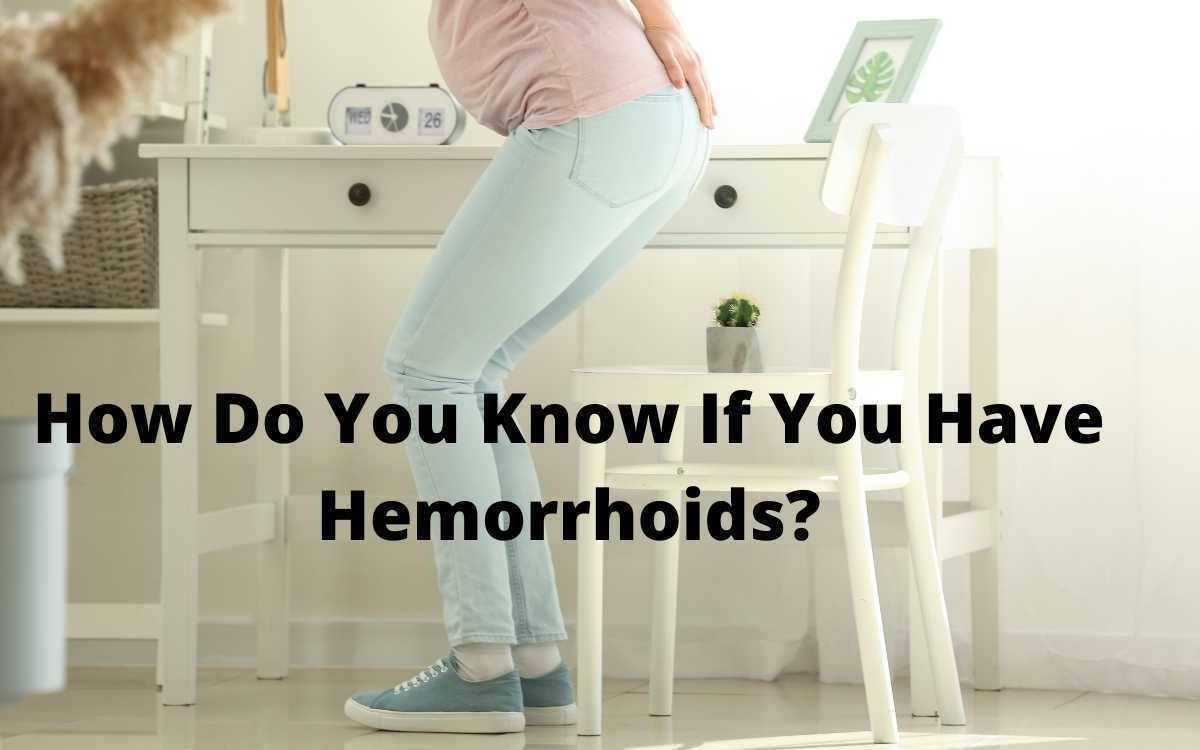Hemorrhoids are a common ailment that can be painful and uncomfortable. It’s important to know when you have them, how they affect your life, what you can do about it, and how to prevent them in the future.
Here are some questions to ask yourself if you think it might be hemorrhoids:
Do I often experience pain while sitting down?
Am I experiencing itching or bleeding after using the bathroom? Is my stool hard or difficult to pass? If so then read on for more information on hemorrhoids.
All of the above could be symptoms of hemorrhoids and it is best to seek medical attention. Your doctor will do a physical examination and can usually diagnose them very quickly.
In this article, we explore everything you need to know about hemorrhoids, including what they are and how to spot them:
What Are Hemorrhoids?
Hemorrhoids (also known as piles) is a fancy word for swollen and inflamed tissues in or around your anus. They can be itchy and painful, but they’re very common. You may not even know you have them.
A lot of people think their hemorrhoids are polyps which are tiny growths along the lining of the anus. Some people might mistake their hemorrhoids for fissures or fistulae – these are tears in or around your anus that can cause bleeding, pain, and itching.
How Do You know If You Have Hemorrhoids?
Hemorrhoids are caused by extra pressure on your veins. They often form during pregnancy because of the hormones that are surging through your body. If you’re straining to poop, it can cause piles. So can heavy lifting, obesity, and even sitting for too long without getting up to move around. Sometimes, it’s just genetics.
Hemorrhoids are swollen veins that protrude from the mucus membrane of your rectum and anus. They’re not life-threatening but they can cause you some discomfort if you don’t tend to them properly. Hemorrhoids are found below your rectum – usually on the lowest part of your colon, but they can also form near your anus.
Here are some signs that may indicate that you have hemorrhoids:
If you notice any of these signs, then it is advised that you go and see a doctor immediately.
- if you find that your stools are becoming harder or more difficult to pass then it’s best to seek medical attention as this could be an indication of piles.
- If you experience pain when passing a stool or feel a “heavy” sensation around your rectum, again this could be an indication of piles.
- If you find yourself itching around your anus or have noticed any bleeding.
Other common symptoms include:
Bleeding during bowel movements. Anal discharge occurs when passing a stool and can occur with mucus, pus, and/or blood. Discomfort or pain.
It is important to note the difference between hemorrhoids, fissures, fistulae, polyps, and abscesses as they are not all related conditions which means that these different terms are often used interchangeably when describing piles.
It is very important that you seek professional advice from a doctor or pharmacist if you are in any way unsure about what these symptoms may indicate and they will be able to provide the necessary advice and information needed.
How long do hemorrhoids last?
Hemorrhoids can stick around for weeks, months, or even years. There are different stages of piles that give indications on how long they will last. A pile that is causing no pain or discomfort may only need to be monitored to see if it becomes problematic later on.
Hemorrhoid that is causing some discomfort but bleeding and is still passing stools with ease can be treated at home, however, if this stage persists for longer than 4 weeks it is best to seek medical attention. If hemorrhoid causes pain when passing a stool or other symptoms such as bleeding then you should see your doctor immediately.
It’s important that you monitor these kinds of piles, and do not ignore them as they may potentially become more problematic.
Can hemorrhoids go on their own?
Yes, they can. Piles often go away with no treatment after a period of time, but remember that piles are highly likely to come back if you don’t maintain a healthier lifestyle – consuming more fibre and fluids, losing weight which will help reduce the pressure on your buttocks and also resting for longer periods during the day.
You should not attempt to “self-treat” hemorrhoids as the symptoms can be mistaken for other conditions which may be more serious and require immediate medical attention.
If you’re wondering how long it will take before your piles will go away, don’t worry it won’t be a quick fix but if you do decide to stick to healthier lifestyle changes then they will gradually start to disappear.
Medical help is always available if you’re wondering how long it will take for hemorrhoids to go away, but remember that there are also natural remedies that can help relieve symptoms of piles.
What happens if you leave hemorrhoids untreated?
Basically, you’re leaving piles untreated and risk them getting worse and ultimately more problematic. If the hemorrhoid is small and treated soon then it may continue to get smaller until it eventually goes away but if a hemorrhoid is left untreated then over time it could become bigger and potentially cause more problems such as bleeding and discomfort.
Just because you’ve been given advice on how to treat piles doesn’t mean that you can ignore them and put them off for later, as the longer you leave hemorrhoid untreated then the more likely it is that it could become more problematic.
If hemorrhoid persists for longer than 4 weeks or other symptoms such as pain and bleeding become apparent, please seek medical attention as soon as possible. Piles may not be life-threatening but it doesn’t mean that they can’t or won’t become more problematic and this is why it’s so important to treat them sooner than later and take any necessary precautions for the future.
How do I know what kind of hemorrhoid I have?
There are three different kinds of piles which consist of external hemorrhoids, internal hemorrhoids, and thrombosed piles.
External hemorrhoids:
This type of hemorrhoid is evident as a bulge around the anus which can become uncomfortable and may be painful if touched. External hemorrhoids often bleed and cause itchiness.
Internal hemorrhoids:
Internal hemorrhoids are always painless and often produce no other symptoms except for some occasional mucous discharge (this will only happen when the internal hemorrhoid is very large).
Thrombosed piles:
This type of hemorrhoid occurs when the veins in your bottom swell and cause a clot to form. A thrombosed hemorrhoid is often extremely painful and may sometimes burst on its own or need to be treated by a doctor.
This is the reason why it’s so important that you seek medical advice when unsure of any symptoms as thrombosed piles can sometimes cause complications that may require immediate medical attention.
How can I treat my hemorrhoids?
If you’re experiencing mild symptoms such as itching and discomfort then there are several easy treatments that you can try at home without any medical assistance:
Make changes to your diet by adding more fibre into your diet, which will bulk up the stools and make them softer which in turn will make bowel movements easier and reduce the strain when going to the toilet.
Your stools should ideally be soft but solid, if your stool is loose then this may mean that you’re not drinking enough water throughout the day.
Increase your fluid intake by drinking at least six glasses of water a day and eating more fruits, vegetables, and foods rich in fibre such as wholegrain bread, oats, pasta, and rice.
Increase your vitamin C intake by eating oranges, strawberries, kiwis, and other vitamin C-rich fruits and vegetables.
| Related Post:
Hemorrhoids Natural Treatment Diet: Everything You Need To Know |

